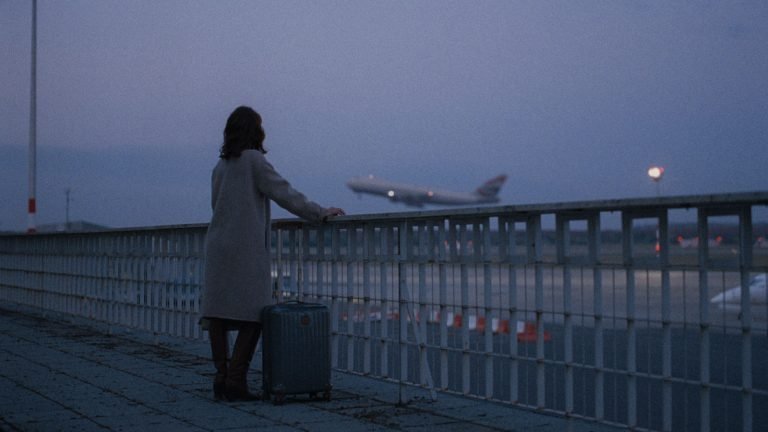'City Hall' Review: Wiseman's Epic City Tour is a Wonder to Behold
- Published on October 4, 2020
- by Igor Fishman
Watching Frederick Wiseman’s diligent document of Boston civic life feels bittersweet in a moment where our national politics appears to collapse into fascism. This grand, nearly four and a half hour tour of Boston elegantly shuffles us through nearly every aspect of city government from budget meetings to garbage collection, school funding to marijuana dispensaries, homeless shelters to sports parades, community cooking classes to traffic court, marriage ceremonies to archeological digs, the scope feels so massive as to appear infinite. Yet, what separates City Hall from other documentaries that tackle the subject is Wiseman’s bold hands-off approach. There are no talking heads, no voice-over, no animated infographics, and no location titles. There is no traditional narrative structure to follow either, he observes like a scientist. Wiseman’s city: an organism; his camera: a microscope. The lens shifts from scene to scene, and the bigger picture develops over time without ever needing pull back to see it.
The film starts and ends at a call center: the city’s neural net. This framing is central to Wiseman’s thesis that quietly simmers as the connective tissue between scenes. In these bookends, we see the purest form of interaction between city staff and city residents. No matter how obfuscated this concept becomes by panels, boards, or power structures, what we are witnessing is a direct relationship between the people and their government. Wiseman’s egalitarian approach in editing which places the mayor and sanitation worker on equal footing, is extended to Boston’s citizenry as well. In City Hall, we are not observing a city ‘managing’ its population, we are observing a symbiotic relationship, within which the equality between the two parties is absolutely vital.


At a quick glance, it might appear disorienting to be dropped into the middle of one meeting to the next, but if you can sync up to Wiseman’s rhythm and thematic undercurrent, the entire project begins to blossom. An odd zen takes over about an hour into the film, and the transitions take on the feel of a nature documentary. We slip away from a meeting to the city streets, where a sanitation worker throws a discarded mattress to the back of a garbage truck, and we watch the slow mechanical movement of the compactor chew its way through. The image stays in mind as we shift over to a meeting across town, and later in the film we’re thrown back into the moment, as a person calling 311 asks about putting out their furniture with the trash, we are reminded of a city’s interconnected web at each and every turn.
All of this is not to say that the film is a pure celebration of civic pride. Alongside joyous moments like a civil wedding ceremony and Senator Markey dancing at a Thanksgiving event, are meetings featuring serious confrontations about racial injustice in Boston, inequality, homelessness, and poverty. These subjects are often presented as pointed questions to the city government from the populace, and while sometimes, answers are provided that point to programs and initiatives, at others, they linger unanswered leaving us to ruminate on the ways in which the city has failed to address them.


Maybe the most astounding quality of City Hall is how this two hundred and seventy minute journey never feels tedious or tiresome. Through masterful editing, the film, despite its scope and subject, never feels overwhelming, but is instead airy and spry. Each fragment of a meeting is followed by a brief and oft delightful digression to another part of town, the film has a bounce in its step, and such a bingeable ease that towards the end of its runtime I could easily have imagined myself taking a break and diving back in for another four hours. What makes that feeling so special, and speaks to the films’ success, is how Wiseman reminds us that the world we just bore witness to is not locked away in secret rooms, but one that depends on our active participation and vigilance pushback to serve our needs, whether we chose to acknowledge it or not.
This review is part of my ongoing NYFF58 coverage with more festival heavy-hitters coming soon including Christian Petzold’s Undine, and Steve McQueen’s Lovers Rock.
Click here to read my NYFF58 Week One coverage.
Thoughts? Feedback? Contact me at hello(at)lostasterisk.com.



‘Lapsis’ Review: Skewering the Gig Economy
Noah Hutton’s sci-fi satire Lapsis may stumble at times, but its punchy riffs on the gig economy make it worth a look.

‘Just Don’t Think I’ll Scream’ Review
(link to theQuietus.com)
A staggering work that uses clips from over 400 films to tell a personal story about cinephilia, alienation, and loss, while speaking directly to our anxious moment. Read my review in The Quietus.

‘Preparations to be Together for an Unknown Period of Time’ Review
(link to UltraDogme.com)
A Sylvia Plath poem comes to life in this meditation on loneliness, infatuation, and love as it exists in our inner worlds. Read my review at Ultra Dogme.

‘Some Kind of Heaven’ Review
(link to InReviewOnline.com)
Equal parts Errol Morris and David Lynch, this oddball journey through the world’s largest retirement community reveals a startling portrait of American alienation. Read my review at In Review Online.

The Ten Best Films of 2020
With 2020 finally drawing to a close, lets take one last look at the wonderful films that came out in this otherwise devastating year.

‘Black Bear’ Review: Aubrey Plaza’s Time to Shine
Aubrey Plaza shows off her considerable talents and range, overcoming a messy script to once again prove her mettle as a formidable dramatic lead.
